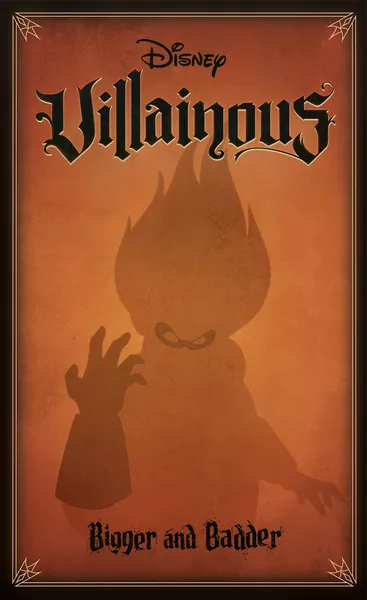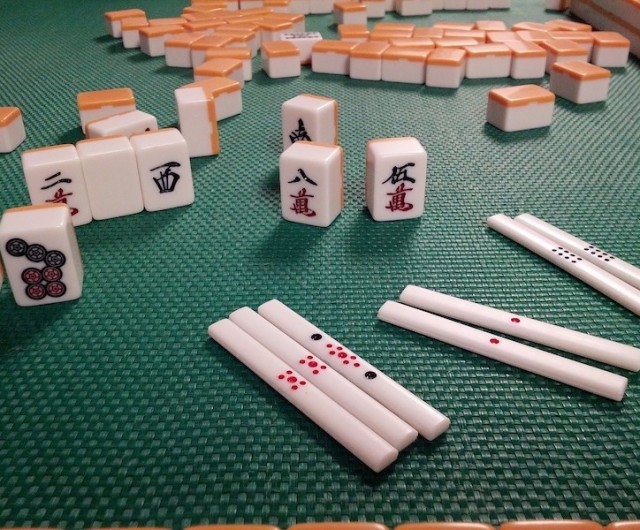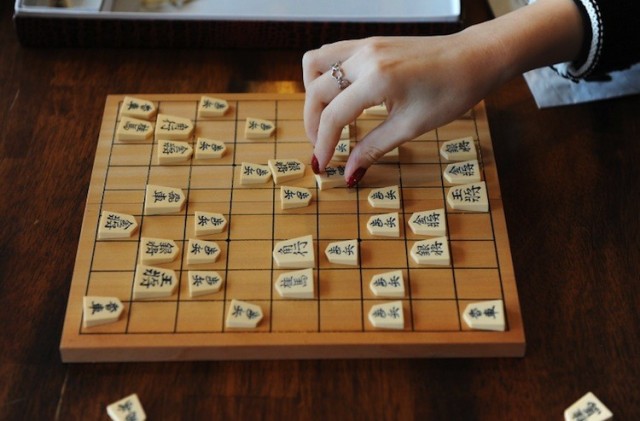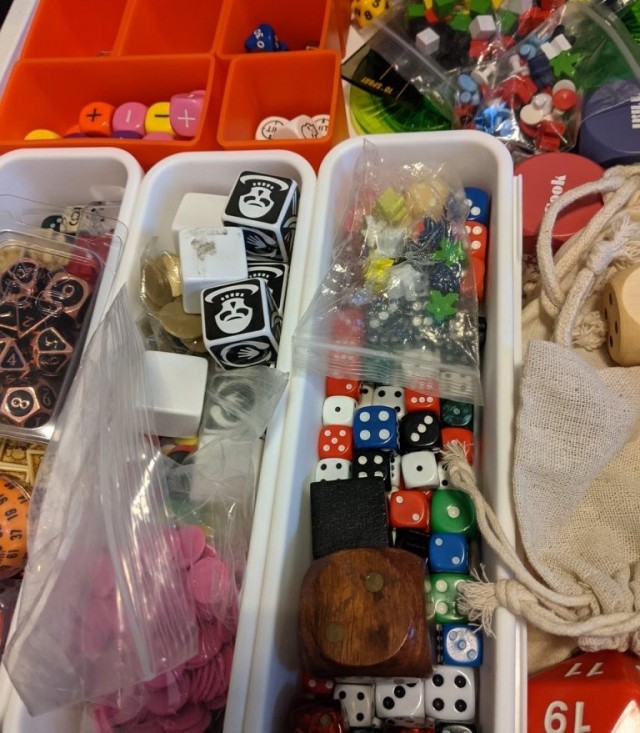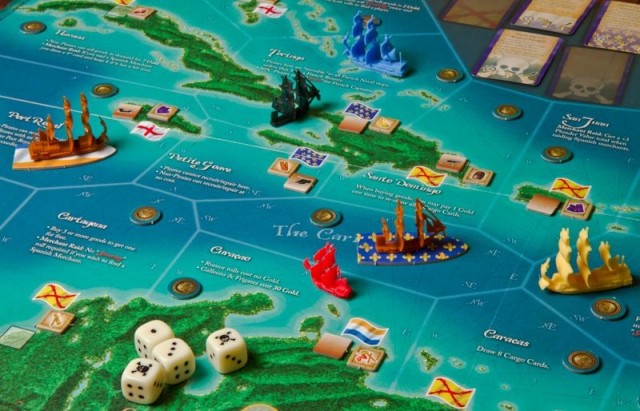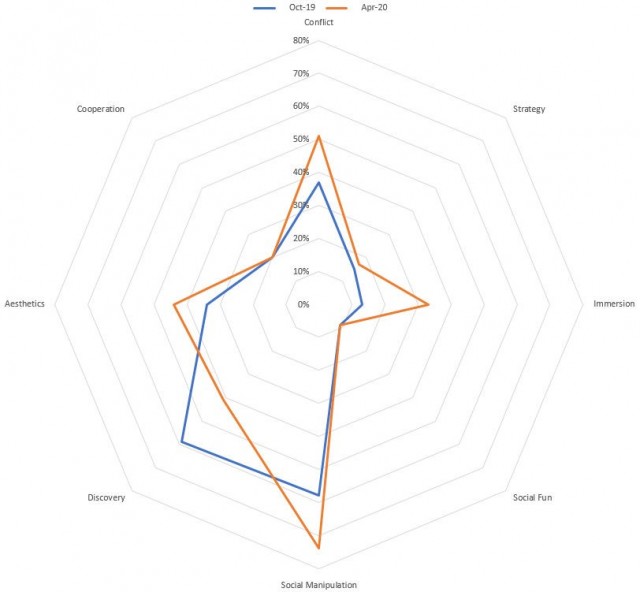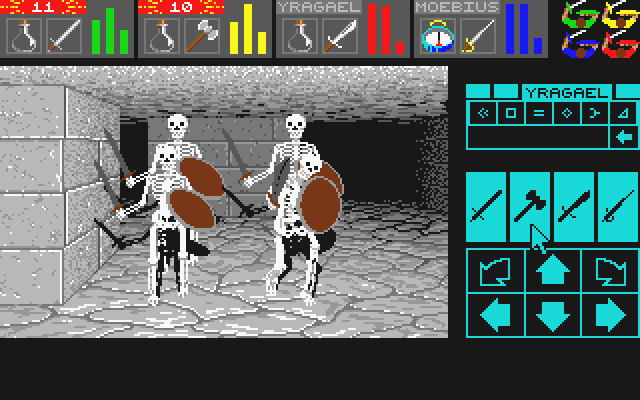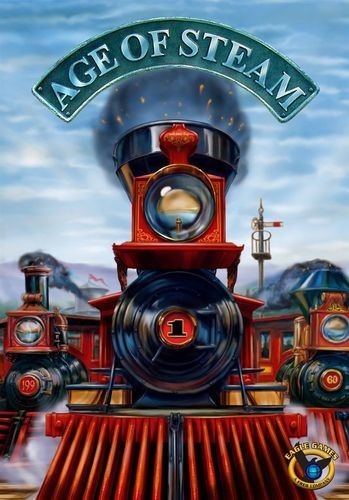 So. I've been accused before of not writing enough about Ameritrash on this site, but someone asked for a piece about Euros that have some proper, old fashioned Ameritrash appeal and so here it is. Don't say you don't get what you ask for!
So. I've been accused before of not writing enough about Ameritrash on this site, but someone asked for a piece about Euros that have some proper, old fashioned Ameritrash appeal and so here it is. Don't say you don't get what you ask for! There are several ways I could choose to approach this particular question. And, you lucky, lucky people, I'm not just going to pick one to focus on, or even two, but instead you're going to get the lot in all their filthy Euro-glory! We'll do the easy one first which is to revisit the distinction I've made previously between "open" and "closed" strategy in games. If you want more details, go read the article in question, but in essence a "closed" game is one in which decisions you make have fairly clear numerical values attached to them - making it relatively easy to write an AI routine that plays the game - whereas in an "open" game the maths behind the game exists, but is heavily obscured by various factors like luck, huge maps, and player-induced chaos. Euro games straddle both classes, but the bad ones are almost all closed games, and the good ones are almost all open games.
See how easy this is? Okay, let's take another way of looking at it. Almost all the Euros that I like can be divided into two categories. The first are very short, very simple games which offer a just-about acceptable level of indirect (and occasionally direct) player interaction and just enough strategy to keep you interested. They're what people commonly refer to as "filler" games. And let's face it: Euros, with an emphasis on easy rules and quick play, are tailor made to fill this role. Examples of excellent games in this category include Ra, For Sale and Condottiere. Now, the trouble with these quick games is that in common with far, far too many Euros, they have a pretty limited shelf-life in terms of replay value. But for these particular games, that's okay: they're often pretty cheap and easy to get in to so you don't begrudge the time and money invested getting to grips with them only to discover they've got a bit dull after ten plays or so. They serve a function - to bring out when friends and family want to game, and to take up time at the start or the end of a game evening. I can give you quite a long list of decent games in this lineage to check out if you want to, but hey, this is an Ameritrash site, so let's move on.
Because the other class of Euros that I enjoy are those that have clear Ameritrash influence. And there's quite a few if you choose to go looking for them. Most date from two quite clear time periods. Firstly the mid-to-late nineties when Eurogames were on the rise, but Ameritrash was still the dominant medium and so it was inevitable that the upcoming Euro designers would be building to some extent on what came before. Secondly is a grouping of very recent games that have picked up on the backlash from many in the Euro-community against the ultra-sterile and often quite complex games which seemed to have become the norm in the middle of this decade. It's these two groups of games which deserve the most attention, in my view, and which will be the focus for the remainder of the article.
Now, there's a third way to come at the question of what constitutes a decent Eurogame, and in my experience it is both the simplest and the most accurate way of determining Euro-worthiness. Read about the game and ask yourself a question: does it involve positional play? If it does, it's probably worth looking at. If not, it isn't. All the best Euros involve struggling for position in some way shape or form - and certainly all the Ameritrash-friendly Eurogames we're looking at now do. It's not hard to see why, when you start thinking about it. By adding a positional element, you're guaranteeing two things: firstly, that there will be direct player interaction and second that there will be an above-average number of tactical and strategic avenues to explore. It doesn't actually need to be board or a map - my all-time favourite two player Euro is Battle Line a truly tremendous little card game which, in spite of its name, has no map at all but which nevertheless challenges you to struggle over territory with your opponent, even to outflank him or her, simply by laying down sets of cards opposite one another and see which one wins. It's positional, and really rather brilliant.
Some of these positional play games have in fact started to look so much like Ameritrash games that I'm astonished the Eurogamers still pipe up and claim them as their own. Wallenstein (reprinted as Shogun) for example, which features thematic history, armies fighting each other and terrorising peasants, mass starvation and boasts a 3-hour play time, is only a Euro in the sense that it puts some sort of cap on the range of choices it offers the players each turn. Even more past the mark is Mare Nostrum which with it's completely open play, variable player powers, unbalanced starting positions and unashamed mythical civilization theme is basically a proper, red-blooded Ameritrash game on which the designer attempted to place some sort of cap on the rules length and play time. Through the Ages on the other hand is a Eurogame that the designer stretched out to Ameritrash levels of complexity, theme, play time and confrontation and found that it was none the worse for it. These games can cut both ways. Mare Nostrum to my mind succeeds admirably and has become the standard and favourite conquest game with my group. Why play an excessively long and convoluted empire-builder when Mare Nostrum can deliver all of the same fun within 3 hours? Wallenstein on the other hand, though good, sometimes leaves me feeling the opposite - why play a 3 hour Euro when I can have some proper gaming action instead?
So, with that in mind I'm going to finish off this article by running over a few of my favourite positional-play Euros that still manage to deliver on the basic premise of a Eurogame by being relatively short and easy to learn. With the longer and more complex examples you're up against a forest of Ameritrash material and if there's the time and the willing to play the AT instead, most of the readers here are going to jump that way. So let's focus on games that are good for a kick when there's not so much time to fill.
My absolute favourite Eurogame can be dealt with quickly and easily because that game is Imperial and I've already written a review. Suffice to say that Imperial is everything I wanted a Eurogame to be when I first started exploring the genre, and discovered to my disappointment that most weren't: short enough for anyone, but long enough to be satisfying, incredibly challenging to play well, highly interactive, easy to learn and teach. Brilliant.
The second can probably be passed over with equal brevity because I doubt there are many here who haven't played Settlers of Catan. This game continues to astonish me because of the seamless manner it manages to integrate all the aspects of what makes game playing fun: analysis, positional play and negotiation. In that aspect at least I think it has yet to be bettered by anything a decade after it was first released. Unlike many here, I prefer the vanilla game without expansions - I find they push it into the "why don't we just play some Ameritrash instead" region of complexity and play time.
The third is equally well known but deserves a bit more column space because it's a game I've played a lot and would keep through even the most apocalyptic of game clear-outs in spite of the fact I don't think it's outstandingly good. That game is Carcassonne. My somewhat "meh" view of it stems from two very clear sources: the more players you add to it, the less strategic it becomes (which wouldn't be a fault if it had something exciting like some dice to roll, but one-tile-a-turn rarely gets the pulse up), and the fact that when played two player I am awesomely, embarrassingly bad at it. But it's got to be a keeper because again it fulfils one of the basic premises that I expected from a Euro: it really is a game for everyone. Whether it becomes less strategic with more or not, it's still a fun experience and scales well. It's short. It's easy to learn. It features a blend of mechanical styles. It's the last word in utility games - if any people you meet anywhere want to play a game, you can slap down Carcassonne and be sure that everyone will enjoy themselves.
My fourth and final pick is also the first that might come as something of a surprise - it certainly continues to surprise me just how much fun I've had playing Attika. The key to the appeal of this game is the way it balances standard euro-motifs of careful economic management with the constant need to watch where you and your opponents are positioning things. The economic side is nothing you haven't seen and yawned over a hundred times before, but when you come to make decisions, there's no way you can easily factor in the need to try and get to a certain space before your opponent does. It might be because he's threatening to connect to two shrines on the board (an instant win), or because you want to hem in his powerful construction that might spawn off a ton of new builds, or because you want to get to a board resource or deny it to your opponents. Whatever the reason, it blows the whole thing wide open in a most delightful manner. To add spice to the mix, when played with multiple players it can also become a negotiation game because there are plenty of opportunities to combine and peg back the leader - but you don't want to be the one doing too much of that at the expense of your own infrastructure.
So there you have it. Normal Ameritrash service will be resumed next week. In the meantime, we hope you have enjoyed this brief foray into Euro-land. I'd like to know which Euros you've found to be top of the heap, and don't forget to leave your empty snail shells and sausage skins on the way out.
 Games
Games How to resolve AdBlock issue?
How to resolve AdBlock issue? 
